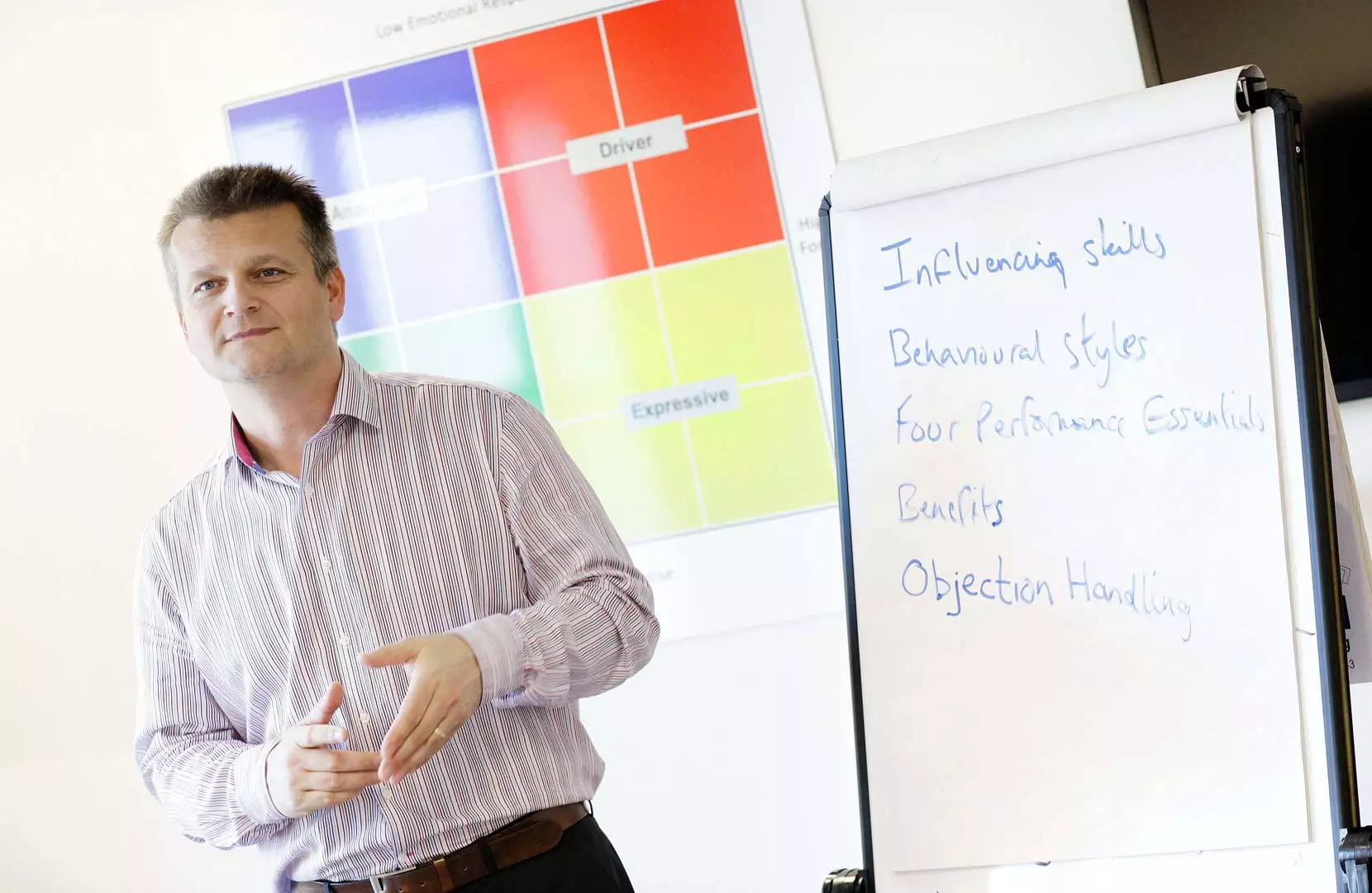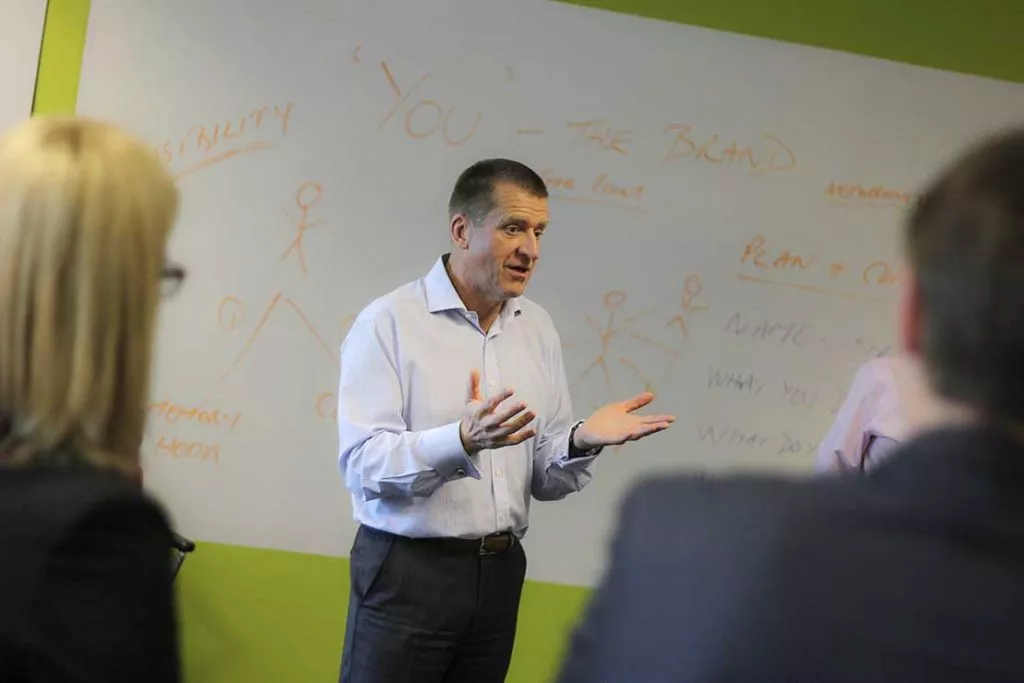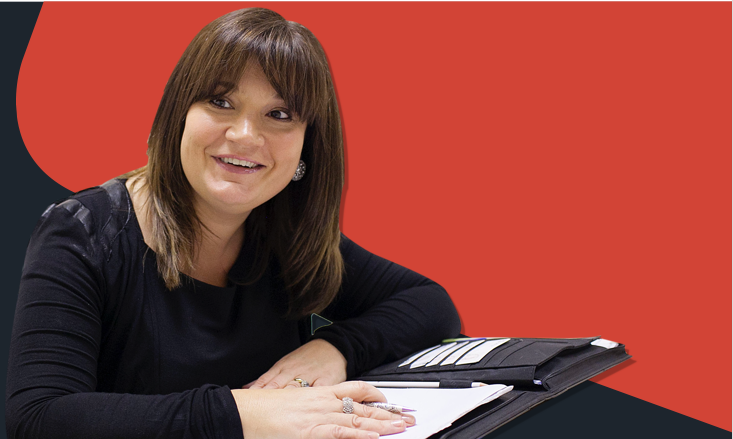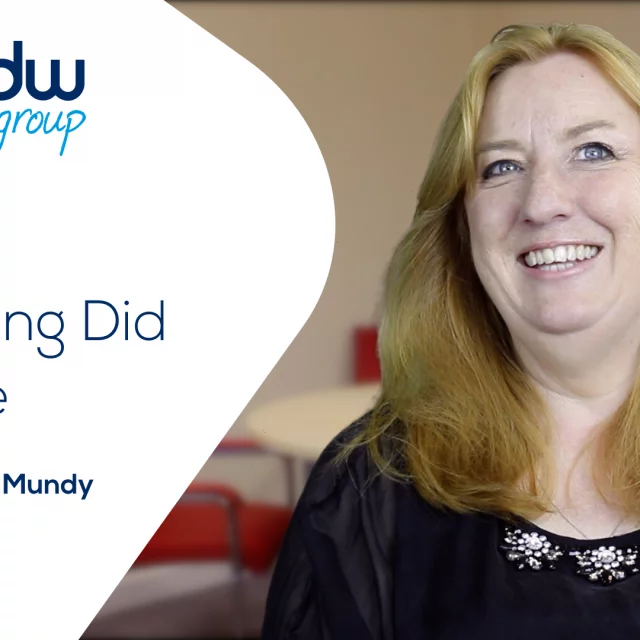Rhys Davis from Armstrong Watson shares his story of how PDW helped him with his professional development goals, and gives some great tips on how you can start your own journey towards self-improvement!
Behavioural Profiling
Accurate and easy to use Behavioural Profiling initiatives when and however you need them.
Instigate ‘light bulb moments’ for your people in any role by using the right behavioural profiling tool.
Behavioural profiling is a great way of assessing and identifying a person’s behavioural ‘default’ settings. If applied correctly, it can hugely improve people’s self-awareness in the workplace.
Put simply, behavioural profiling identifies the subconscious behaviours that make up our ‘preferences’. These are the ones that we often retreat to when we are under pressure.
Proper profiling (sometimes called personality typing) is able to ‘type’ people. This means they can identify themselves, as well where and how other people differ. Personality typing is a significant component of improving self-awareness, the foundation of effective influencing and leadership of others.
There are a number of different types of profiling, and personality indicators. Some focus overtly on a person’s preferences or defaults; others focus more on a person’s internal drivers and passions.
So How Can It Be Used and Applied?
Behavioural profiling outputs can be used in a number of ways such as…
1. Behavioural Development – As an integral part of our unique approach to behavioural training, an essential starting point is self-awareness and self acknowledgement. Behavioural profiling is a key part of helping people become better influencers by learning to ‘style flex’ in certain situations.
2. Recruitment – To assist businesses with internal and external recruitment. It is not about right and wrong, good or bad. It is about how ‘appropriate’ the person is for the job in question based on their behavioural preferences and ‘defaults’.
3. Team working – To help businesses improve the effectiveness of teamwork both within and across teams. High performing teams are in part high performing because of the cross section of behavioural preferences within the team and the understanding between individuals. Helping people to work better together by understanding their own and others’ behavioural preferences is very powerful.

What Profiling Tools Do We Use?
There are a number of choices here, and many organisations tend to adopt one model or product. They then develop the thinking and terminology that comes from it to be cultural, so everyone ‘speaks the same language’.
We have developed our own ‘in house’ generic model that uses the four style quadrant origin of most modern licensed products. We include access to our own on line questionnaire and reports for clients as part of our behavioural development programmes.
There is no extra per delegate cost for this tool being implemented in conjunction with a workshop or programme if it is run by us.
Clients can also buy this service in isolation if required and fees are charged per questionnaire and profile report.

Clients can also buy this service in isolation if required and fees are charged per questionnaire and profile report.
There are also a number of branded licensed products on the market which all have their place. The fees structure is set by the brand owner and at least one member of our team is licensed to facilitate the questionnaire & reports, and deliver debrief workshops in each one of the below.
- Insights Discovery
- Myers Briggs Type Indicator (MBTi)
- SDI
- Thomas International DISC
Each of these products requires the completion of a questionnaire, and then provides a personalised report.
We regularly run one day workshops for a group of, for example, 6 to 12 delegates to help them understand and digest their report, so as to begin using this insight in the workplace.
Here’s what Encore Personnel had to say about PDW
“Brilliant trainer, relevant and engaging content, I feel motivated and closer to my team colleagues as a result of the day so mission accomplished!”


You may also be interested in...

Business Training Courses








I often hear myself say “Great opportunity to use your PDW skills” – or, in shorthand, just “PDW!” This has been the most effective training I have done in my career – and to call it training downplays it.

Particularly good feedback from the team on all the practise sessions as this really brings the theory to life – and a great team helping to do that.

Good structure, very well facilitated and the combination of project and personal skills training meant that it was easy to see how the personal skills could be practically applied.

I often hear myself say “Great opportunity to use your PDW skills” – or, in shorthand, just “PDW!” This has been the most effective training I have done in my career – and to call it training downplays it.

Particularly good feedback from the team on all the practise sessions as this really brings the theory to life – and a great team helping to do that.

Good structure, very well facilitated and the combination of project and personal skills training meant that it was easy to see how the personal skills could be practically applied.


Download Our Free Guide: How To Build Outstanding Customer Relationships
Learn how to build strong customer relationships and keep them coming back for more with this comprehensive guide. Download now and improve your customer relationships!
Noble Events What’s It Really Like ToWork With PDW?
We know that reading about PDW isn’t the same as seeing the impact our training has on your team, or taking part in a session, yourself. To help you get a feel for what’s really involved, and better understand how our approach could benefit your business, we’re talking to Sarah Cox, an MD who’s already taken the positive step of working with PDW.

Rhys’ Story How PDW Behavioural Training Has Helped My Professional Development

Success Story A Prestigious Accountancy Firm Endorses Leadership Development From PDW
PDW Group specialises in developing new behaviours and habits for professionals via unique business training courses that allow them to prepare for new responsibilities, or to perform better in their current role. In this blog post, we look closely at how PDW’s training helped a top accountancy firm to transform the way they work.

Success Story Endorsement from Richard Bugler - Albert Goodman
At PDW we recently had the honour of receiving this glowing testimonial from Richard of Albert Goodman. He explains below how his partners thoroughly invested in our leadership development training and reaped the numerous rewards. Read on to find out more, in Richard’s own words…

Success Story What Coaching Did For Me
Coaching can significantly help your day-to-day work and have a positive impact on how you operate.
We talked to Sandra about her journey with PDW Group and her realisation of why coaching was the next step for her.
Coaching enabled Sandra to see some of the specific blockers that were preventing her from being the type of partner she wanted to be how it lead her to be a happier person.

Testimonial Fisher German
Fisher German’s partner of the future needed a more innovative and robust approach in order to be different. They wanted their partners to be suited for partnership. This means having the right skills and leadership ability, both internally and externally.

Testimonial Openfield
As a leading agribusiness, Openfield are one of Britain’s most successful and enduring cooperatives, committed to putting their members’ needs first.
Openfield are realising their vision to be an integral part of their farmers’ and customers’ businesses, building unique relationships that create value.

Testimonial Robson Laidler
Robson Laidler are a leading accountancy firm in Newcastle – upon- Tyne. They approached PDW Group to develop the leadership ability within the senior teams in the firm to improve overall performance and employee engagement.

Get In Touch
Connect with PDW Group today for expert solutions tailored to your needs. Providing innovative strategies, our team is dedicated to your success.

Insights To Help You Lead, Engage and Perform
.png)
When it’s thoughtfully designed, measured and supported by organisational context, leadership training can be incredibly effective. Training helps individuals grow in confidence,...
.png)
Experiential leadership training is a dynamic and immersive method of developing leaders. Rather than relying on traditional lectures or slides, this approach engages participants...
